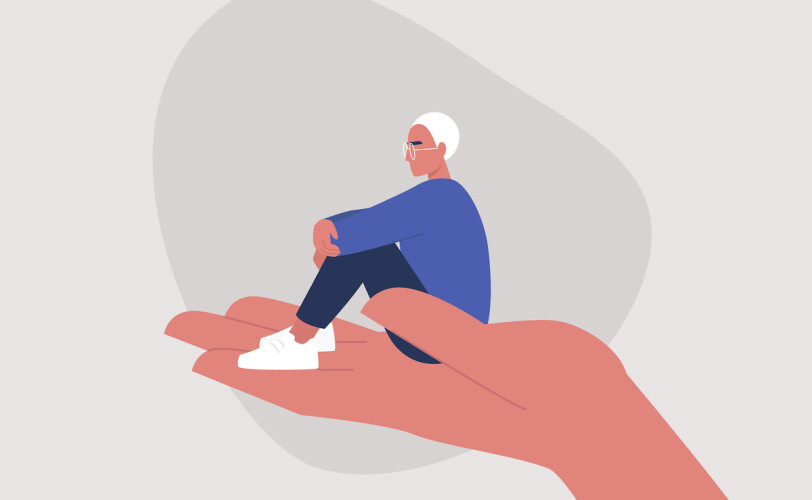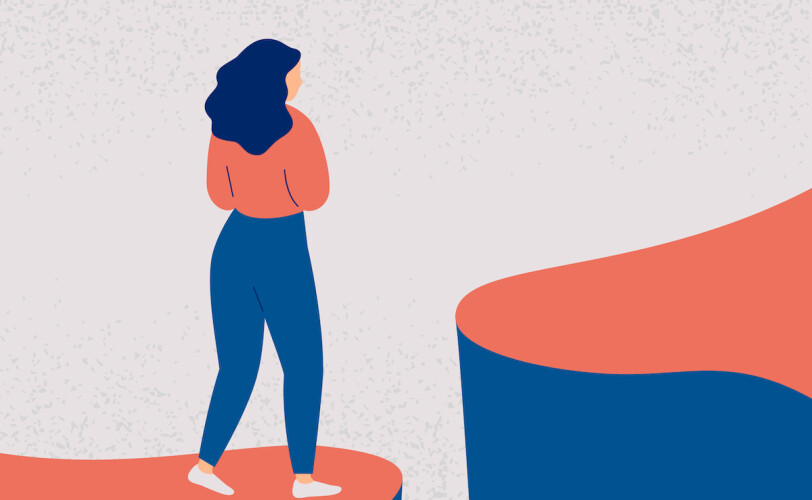Turn childhood feelings of low self-worth into healing
“Love makes your soul crawl out from its hiding place” - Zora Neale Hurston

It’s often the case that when we start talking about how bad we feel about ourselves, sooner or later, we’re going to remember that this started a long time ago. Here, I will show you how to start to address your self-worth on a deeper level.
Start having conversations with your inner child
- Make a note of the thoughts associated with not being good enough, like “I’m useless”.
- Go back to the first age that you remember feeling like this.
- Remember details of yourself, where you are, and what it feels like.
- Say or write down all the words that come with not being good enough.
- Allow yourself to feel it. This pulls out the sadness of the human condition.
- Ask what your inner child needs from you.
- You can practice tucking the child/ teenager in your heart.
- Pause at the place of where it started; the story of hurt. Take in that this is where you got this critic from.
- Whenever you notice this critic, soften your body, and breathe.
You can do this now. Take a gentle breath as you soften your body.
When I ask clients about this, the child often wants to just sit with you, to have a hug, or for someone to stand up for them. Sometimes they are wary and stand back, so it can take time to get communication going. Keep offering the gentle kindness and acceptance that you would offer any child.
This is healing on a heart level. It’s attention for the lonely part of you that’s always been there. Then, in the same way, remember first feeling wanted, loved, or special. Allow yourself to feel and re-experience every detail of that, too.
There’s a connection that you need to learn to make inside for yourself. No one can do this for you. You need to be able to recognise when you have that self-esteem collapse, and to have compassion for yourself at that moment. You need to learn to recognise that you feel worthless. Normalise that feeling. We all have it. Normalise that sometimes you feel good, and sometimes you don’t. The idea is to find equilibrium in how you judge yourself.
According to neuroscience, our brains are hardwired to have a bias towards negativity. This bias means that we are naturally drawn to focus on the bad things that happen. Our decisions are often made from here, and we often relate to others from here, too. This can cause great problems in our lives, such as isolating ourselves through mistrust, or overworking, through worry. So, we need to learn and practice something else, to override this.
Heal your story
Working with your story, as with working with core beliefs, you realise that you have a choice whether to believe it, and that it’s an unhelpful story.
Start by making a name for the critical part of you, and a character. Describe it. Get to know it. What does it say? What would it look like? Then, create a story of the opposite; the resourced, strong, and beautiful parts of you.
What if you didn’t believe that shadow story? How would your life look then? Or, what if someone else in your story told the story? What would they say, believe, or feel? What story would someone who loves you tell about you? Is this story all you are?
Another way of looking at this is by exploring who you would be if you were someone fundamentally different, with a different history.
You can also think about times when your story has shifted, what that was like, what it took, and where it led you. What story would you like?

Learn to take compliments
People who fear receiving compliments, or who mistrust compliments and kind behaviour, tend to find it harder to feel worthy, and are more likely to feel depressed.
A meditation, (from Kelly McGonigall), is to try breathing in the words:
“May you be free from the suffering”, “May you be happy”
You may have resistance to this. This may be valuable information in itself, teaching you about how and why you protect yourself. But, learning to receive is something you need to learn.
How can you let yourself receive more? What’s it like for you to be held, heard, loved, accepted in non judgement? What is it like to take that in?
Take tiny steps
Look out for all the tiny things that we all do on a daily basis to contribute to the joy of other people’s lives. Every time you smile at someone, it makes a difference.
Healing early difficulties, or how we developed how we feel about ourselves, and whether we deserve to be loved, is not an easy quick fix process. But it is a case of combining love for your wounded parts with corrective experiences.
Compassion is something we need to learn and practice. Progressing a tiny step towards feeling worthy counts a great deal.
“If you concentrate on small, manageable steps, you can cross unimaginable distances.”
― Shaun Hick
What’s the tiniest first step you could take towards being compassionate to yourself?
Citations
Zora Neale Hurston
Shaun Hick
Some ideas here were inspired by a Nicabm training on working with self-worth.
You can also check out the podcast of this article.

Find the right counsellor or therapist for you
All therapists are verified professionals
